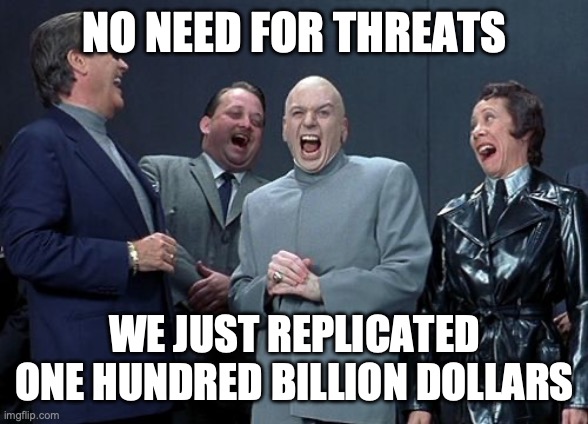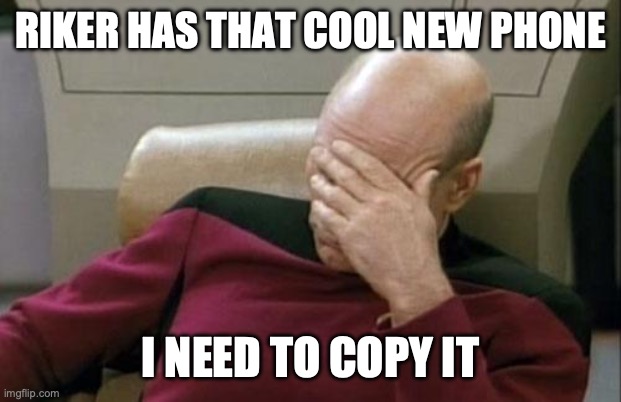“Tea: Earl Grey, hot!” This is one of Captain Jean Luc Picard’s most famous quotes from the Star Trek television series.
A few seconds later, a cup of steaming tea materializes in the “Replicator” and Captain Picard can enjoy it.
The replicator can produce not only tea, but all kinds of drinks, food and contraptions. What if we could really build such a Replicator and everyone had one at home, just like the crew of the Enterprise?
Introduction
In Star Trek, the Replicator is a device that can create any kind of material product. Patterns for these products are stored in the Replicator’s memory. It then manipulates matter at the subatomic level and arranges it to form the product desired by the user. It materializes right out of thin air, and it looks like magic.
Today we already have 3D printers. They can also create products from a program stored in memory. But they are limited to the type of material they can process, such as plastic, metal or ceramics. And they cannot form complex composite materials, such as electronics. So we are a long way from the dream of a replicator, and it is not at all clear how to build one.
But what if the replicator were no longer a dream, and we could actually build it? What if everyone had one in their home? How would it affect our lives?
Let’s explore the hypothetical consequences of this speculative question: The opportunities and challenges a replicator would bring to our societies.
Money
Imagine that a company issues a press release: “We’ve invented the Replicator! We are looking for testers to try it at home.”
You are electrified and say: Here! You are lucky enough to be chosen from the millions of interested people.
The Replicator arrives at your home. You plug it in. The light comes on and it awaits your commands. What would your first command be?
If you think like me, your request might be: “Computer, give me a hundred million dollars, in small bills!”

And a few seconds later, a huge pile of dollar bills materializes in your house. You may spend the first few thousand dollars to rent some storage space for all the bills, but after that, you are one of the richest people on the planet.
But not for long, I am afraid.
As soon as other people got access to the Replicator, they started doing the same thing. Soon everyone would have millions and billions of dollars, or other currencies, or even valuables like gold. This would automatically devalue all paper-based currencies.
Historically, legal tender has been either what is scarce (coins made of rare metals like silver or gold, or in some places, seashells) or what is hard to reproduce (paper bills with anti-counterfeiting measures).
With a replicator, none of this matters. If you can make anything, scarcity does not matter. And if you can make perfect copies of anything, anti-protection measures will not matter either.
The result will be that paper money will be worthless almost overnight. The only reliable way to transfer money would be electronically. This could be an official tender like the Digital Euro currently being discussed, or distributed ledgers like Bitcoins or Etherum.
You may object: But already today we could copy banknotes with copy machines, and these have built-in protection against copying banknotes. We could do the same thing with replicators.
Well, in principle we might, but how long before there is a manufacturer of Replicators who does not play by these rules? It would not be feasible to rely on all manufacturers to follow such a rule; someone will always try to cheat. And the potential reward for replicating bills would be much higher than for just copying. I am sure that many people will find this tempting and work around the rules. So it will be done, and the rules will be meaningless overall.
Business
Legal tender is worthless. But who cares? You can make anything you want. Why bother with money at all? Will we still need it? Will there be anything left to buy?
Yes, there will. Because while the Replicator can make anything, it still needs two inputs: Information on how to make a product, and energy to make it.
Both will still be scarce and will have to be bought.
Let’s start with energy. The Replicator needs energy to work, so you need some kind of energy to feed it. It will probably be electrical energy. You could use a replicator to make solar panels, wind turbines, or even parts of a larger power plant. But where do you put them? If you live in an apartment, you do not have much opportunity to harvest energy from your surroundings. After all, any form of power generation takes up a lot of space. So the limiting factor here is not the ability to make the equipment, but the space to put the equipment.
Unless you have a large plot of land or a river, chances are you will still need to buy energy from a utility company to power your replicator.

The other factor is information: How does your Replicator know to make the latest iPhone? Or the pizza you like best? It will need a recipe to make each product. And those kinds of recipes are what businesses will sell in the future.
If you want your replicator to replicate a product, say the latest iPhone, you would first transfer some of your (electronic) money to Apple. Then they would send your replicator the plans to make the latest iPhone, along with some kind of limit that allows only one copy to be made. Then the plans should somehow delete themselves.
Here is a big potential problem: How do you make sure that the recipe is only copied once and not multiple times? Similar to paper bills, the incentives to break any copy protection mechanisms will be very high, and thus likely to be broken.
To circumvent this, it is quite possible that companies will not sell their replication receipies to anyone at home, but only to certified retailers.
So maybe the Apple store will not disappear with the invention of the replicator, it just would not need any storage anymore.
If things go this way, you may only be able to make simple open source products and food at home, while more complex products can only be bought in a store. So the age of shopping in stores may not be over yet.
Copy Protection
Speaking of copying: If the Replicators can make anything, could they not copy anything? Maybe they could have some kind of subatomic scanner that would allow them to figure out the pattern of how an object was made? Then it could make a perfect copy of that item.
So if you buy just one phone in the store, you could make many new ones at home.

I guess for products like iPhones this could be overcome. If you make a perfect copy of a phone, it will have the same serial number. But you have to register each iPhone with your Apple ID first – then Apple might notice that a second phone with the same serial number is registered and block it.
Still, the problem of copying products is likely to be very serious. The copyright infringement that the music industry fought in the age of Napster will pale in comparison to this significant change.
This is an important problem that we need to solve soon and for which I have no solution. If there is no good solution, then there will be no incentive for companies to develop new products if they cannot protect their copyrights. So the most ingenious device we have ever built – the Replicator – could very well be the end of innovation.
Weapons
One more important thing we need to figure out is how to prevent the proliferation of weapons. Even now, with 3D printers, you could make guns and get around gun control laws.
With a replicator, you could not only make guns, but all kinds of explosives, maybe even armored vehicles and tanks.
How can the state keep control if everyone can arm themselves?
That will be a big problem to solve.
Outlook
This article has only touched on some of the questions a Replicator would raise. There are so many different aspects to consider. Will a Replicator be able to replicate itself? How much energy will it need to do so, and might it be cheaper to make some products the old-fashioned way?
Can we use a Replicator to produce living organisms? What about humans? This would raise not only practical but also ethical questions.
Digging deeper, there are so many more questions that need to be answered before we see widespread adoption of this technology.
Science and engineering are making some progress in this direction. Today, we can 3D print machine parts, cakes, and even some living tissue. But we are still a long way from manipulating matter at the subatomic level.
Fortunately for us, the Replicator is still a fantasy we can only see in science fiction movies. A Replicator would make our lives easier, that is true. There would be no need for shopping or cooking. We could save so much time!
On the other hand, many things in our society only work because not everyone can have them in any quantity: Money, guns, or the ability to simply copy what someone else has made. When all these limitations are gone, our societies will face huge challenges, and I am not sure we are prepared for them.
Further Reading
The example of the Replicator answers the question of what would happen if we could create anything we wanted in an instance.
If you want to learn what happens if we could move anything from anywhere in an instance to anywhere else, see my article on the Transporter.

One reply on “Tea, Earl Grey Hot… and a new iPhone! – The Impact of Replicators”
[…] One last thought: If we could dematerialize objects and rematerialize them elsewhere, what would stop us from rematerializing them twice? Or a hundred, a thousand, a million times? This brings us to another famous Star Trek technology: The Replicator. What would that do to our lives? I disuss this idea in my next article. […]